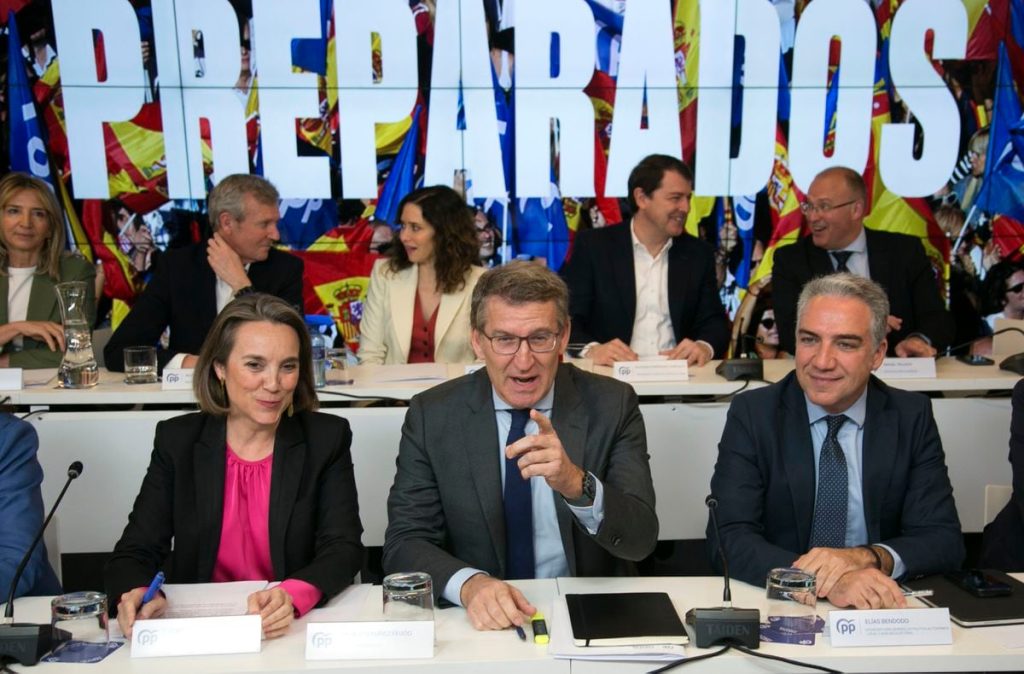Alberto Núñez Feijóo presided over a meeting of the National Executive Committee of the PP at the party’s national headquarters on Génova Street in Madrid. Two years after being elected president of the conservative party, Feijóo’s speech highlighted the fact that some of his main goals, such as eliminating division and polarization in politics, have not been achieved. Despite the increase in the party’s territorial power and growth in seats and voter intention, the PP has not been able to reach any agreements with the PSOE to renew the General Council of the Judiciary.
Feijóo’s promise to move away from confrontation and hyperbole and usher in a new era of possible State pacts has not materialized. While he initially stated that his approach to politics would be one of understanding and not insults, Feijóo has since aligned himself with hard-line figures within the party who have made inflammatory statements against the government. He has also engaged in hyperbolic rhetoric that contradicts his original stance of promoting a more moderate and peaceful political environment.
Despite Feijóo’s initial commitment to fostering State pacts and cooperation with the PSOE, the PP has failed to reach agreement with the Socialists on key issues, such as the renewal of the General Council of the Judiciary. The only pact made with the PSOE was to reform a constitutional article, but significant agreements have yet to materialize. There have also been instances where the PP has aligned itself with Vox, the far-right party, in opposition to progressive legislation.
Feijóo had initially emphasized the importance of a cordial bilinguality and a pluralistic vision of Spain. However, his actions have not always aligned with these principles. While he defended the use of different languages in Spain, including his native Galician, he criticized the use of these languages in parliamentary debates as a “karaoke”. Additionally, Feijóo’s approach towards Catalonia has shifted towards a more combative stance against amnesty for Catalan separatists, despite previous overtures for reconciliation.
Despite these challenges, Feijóo has achieved some successes during his time as party leader. The PP has expanded its territorial power and made progress towards unifying the right-wing factions in Spain. While the integration of Ciudadanos into the PP failed, the party has absorbed Ciudadanos electorally. Vox, while decreasing in popularity, still maintains influence within the PP. Despite these achievements, Feijóo acknowledged that the ultimate goal of reaching the Moncloa, or the Spanish presidency, has not yet been accomplished.
In conclusion, Alberto Núñez Feijóo’s leadership of the PP has been marked by both successes and challenges. While the party has grown in territorial power and made strides towards unifying the right-wing, Feijóo has faced criticism for failing to deliver on promises of reducing conflict in politics and fostering State pacts. His shifting stances on language policy and Catalan separatism have also raised questions about the coherence of his leadership. As Feijóo continues to navigate the complex political landscape in Spain, he will need to address these issues in order to secure his position as leader of the PP and achieve his ultimate goal of reaching the Moncloa.














